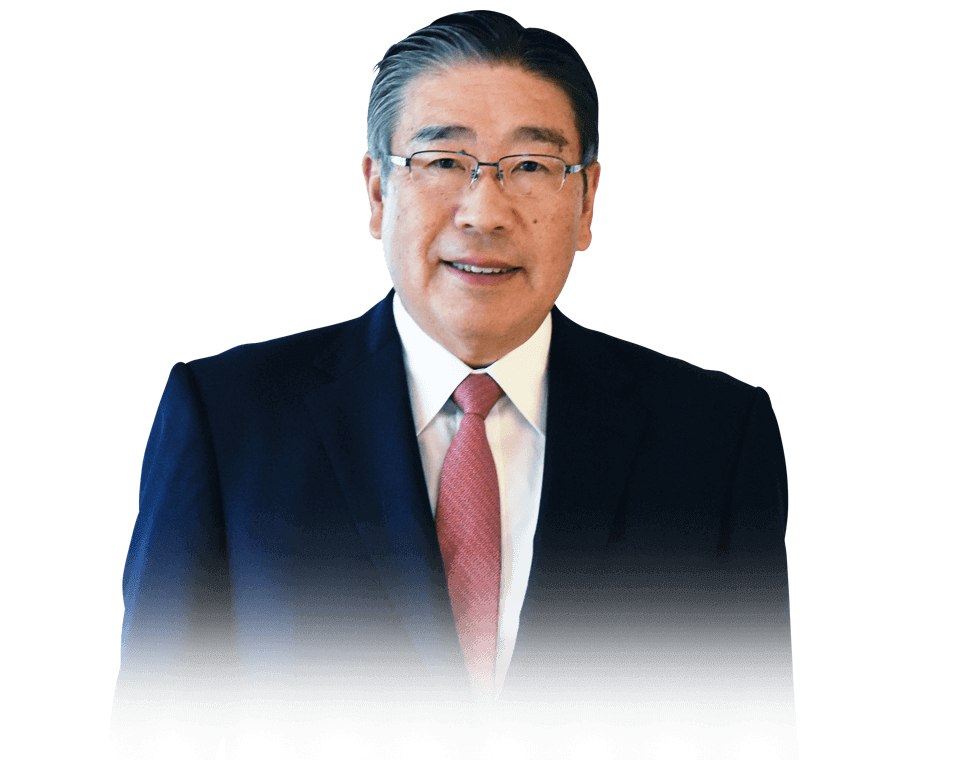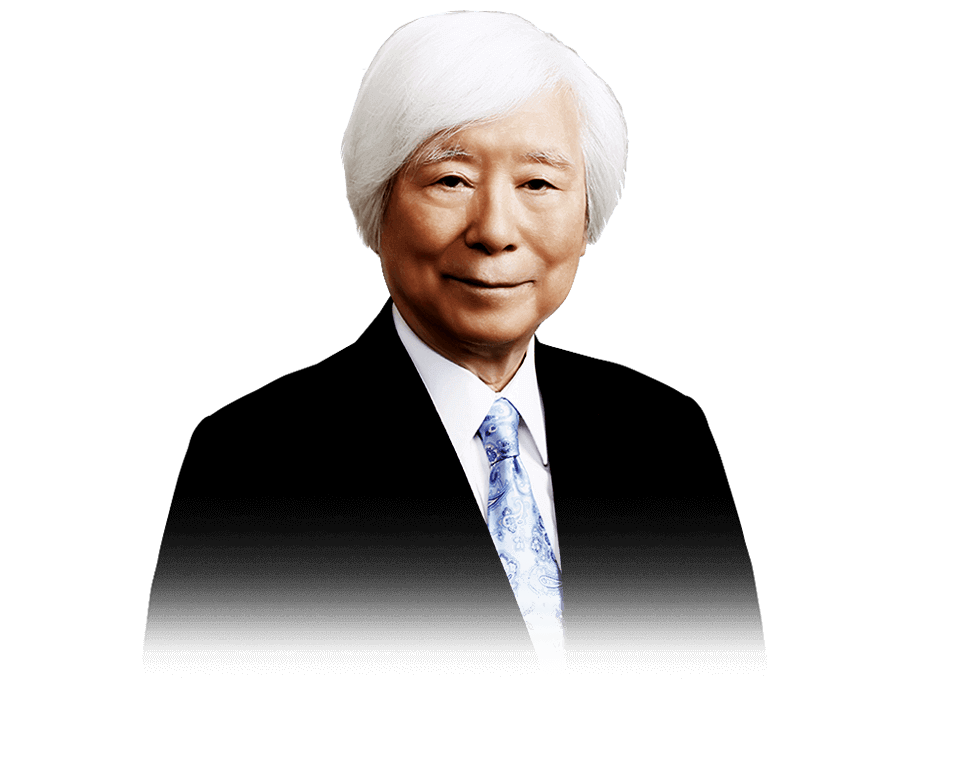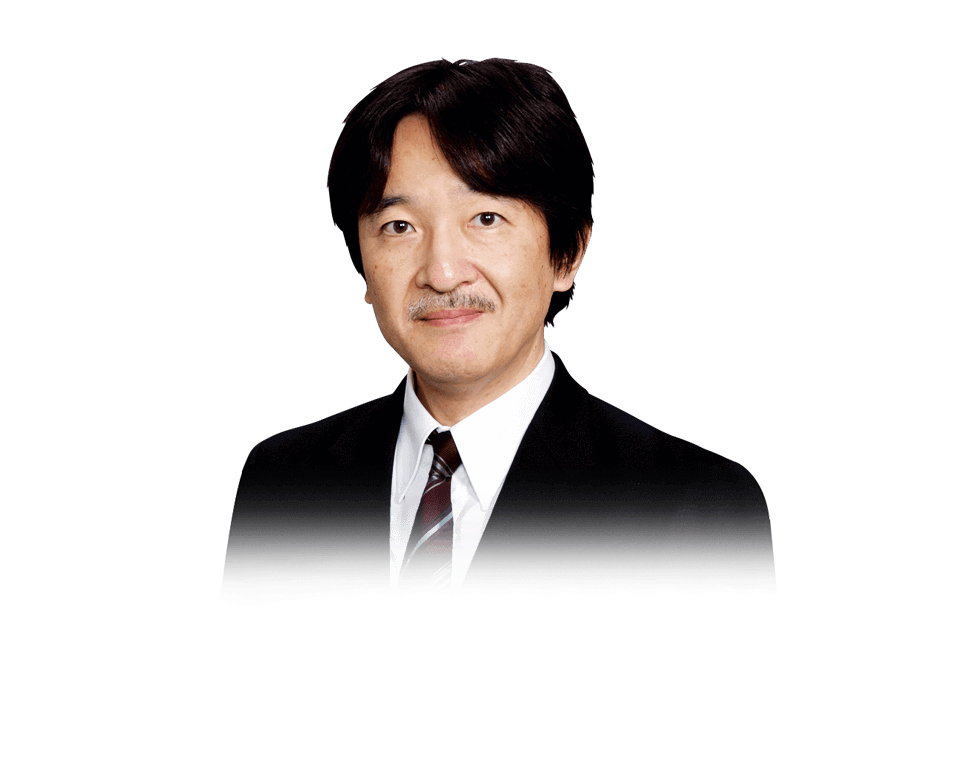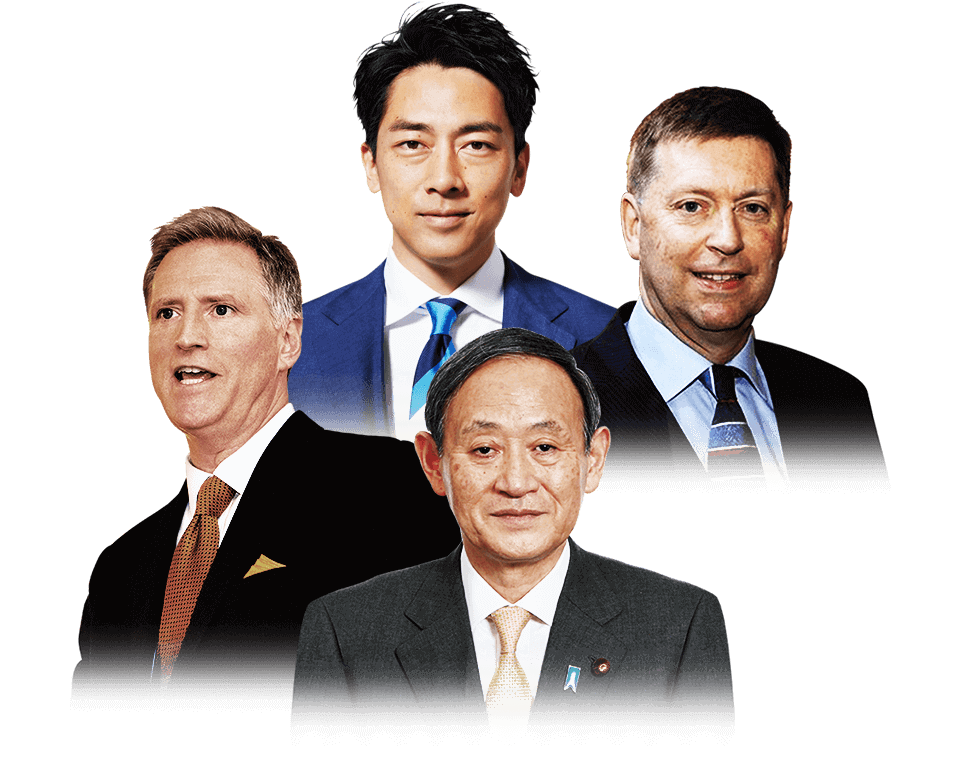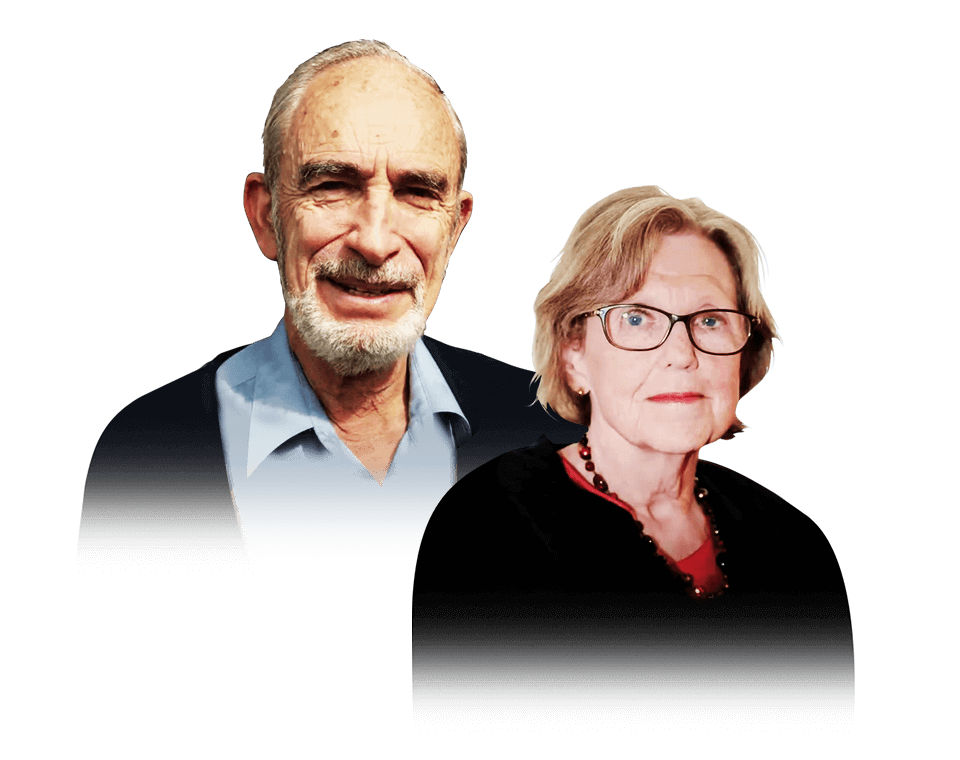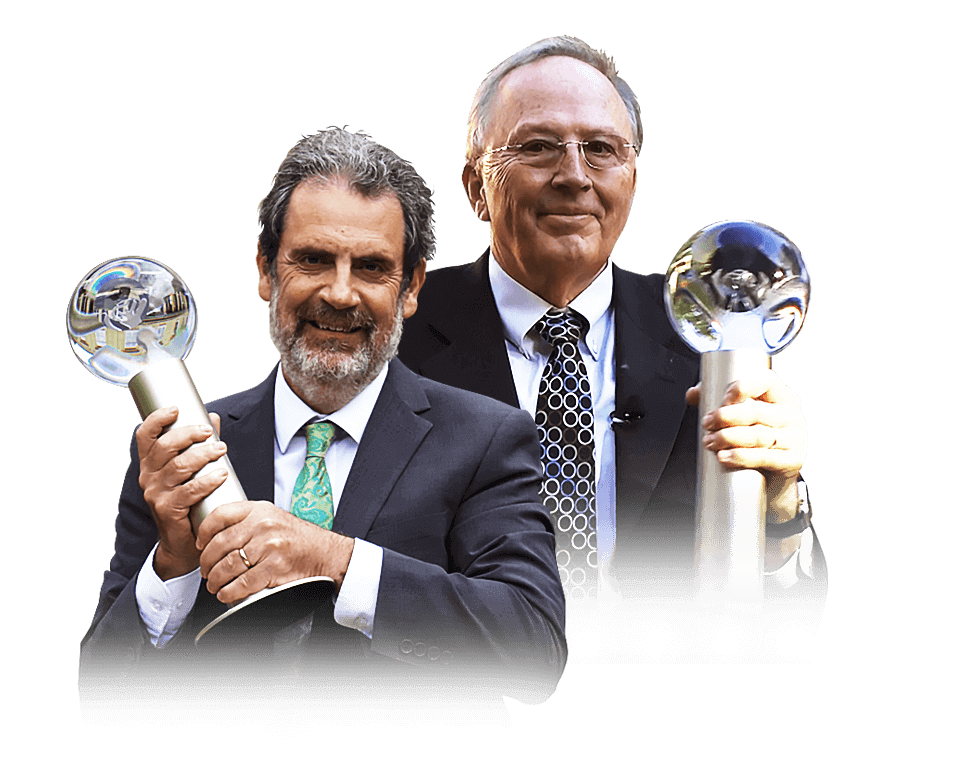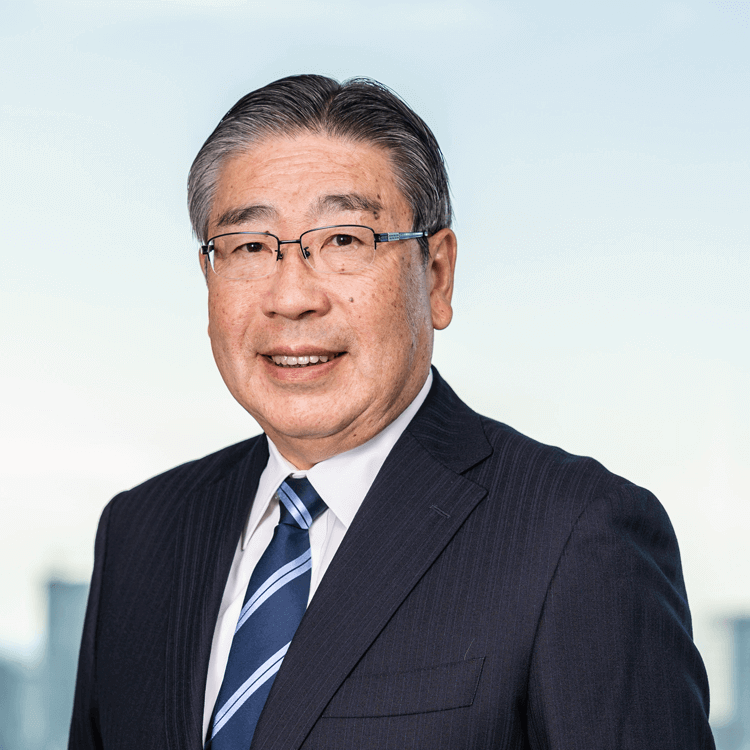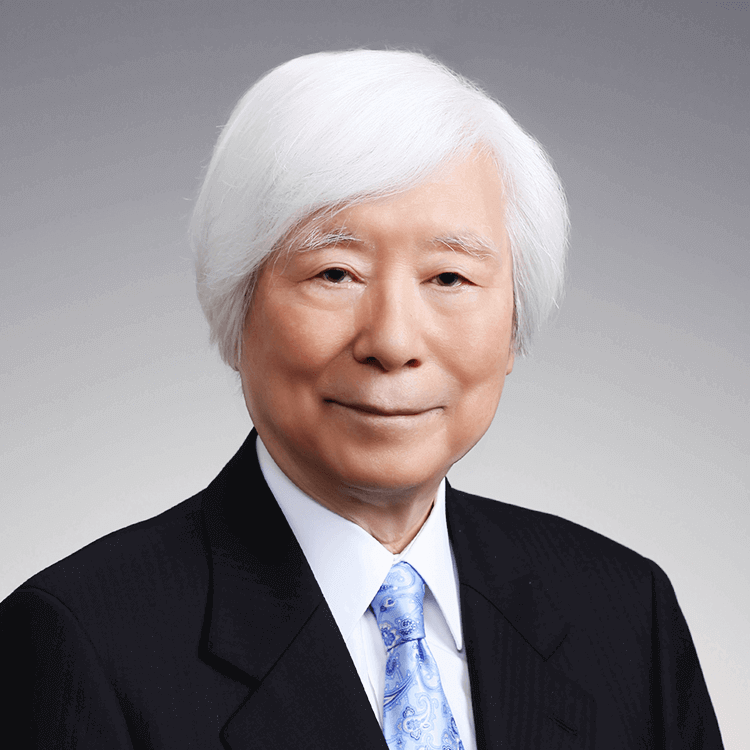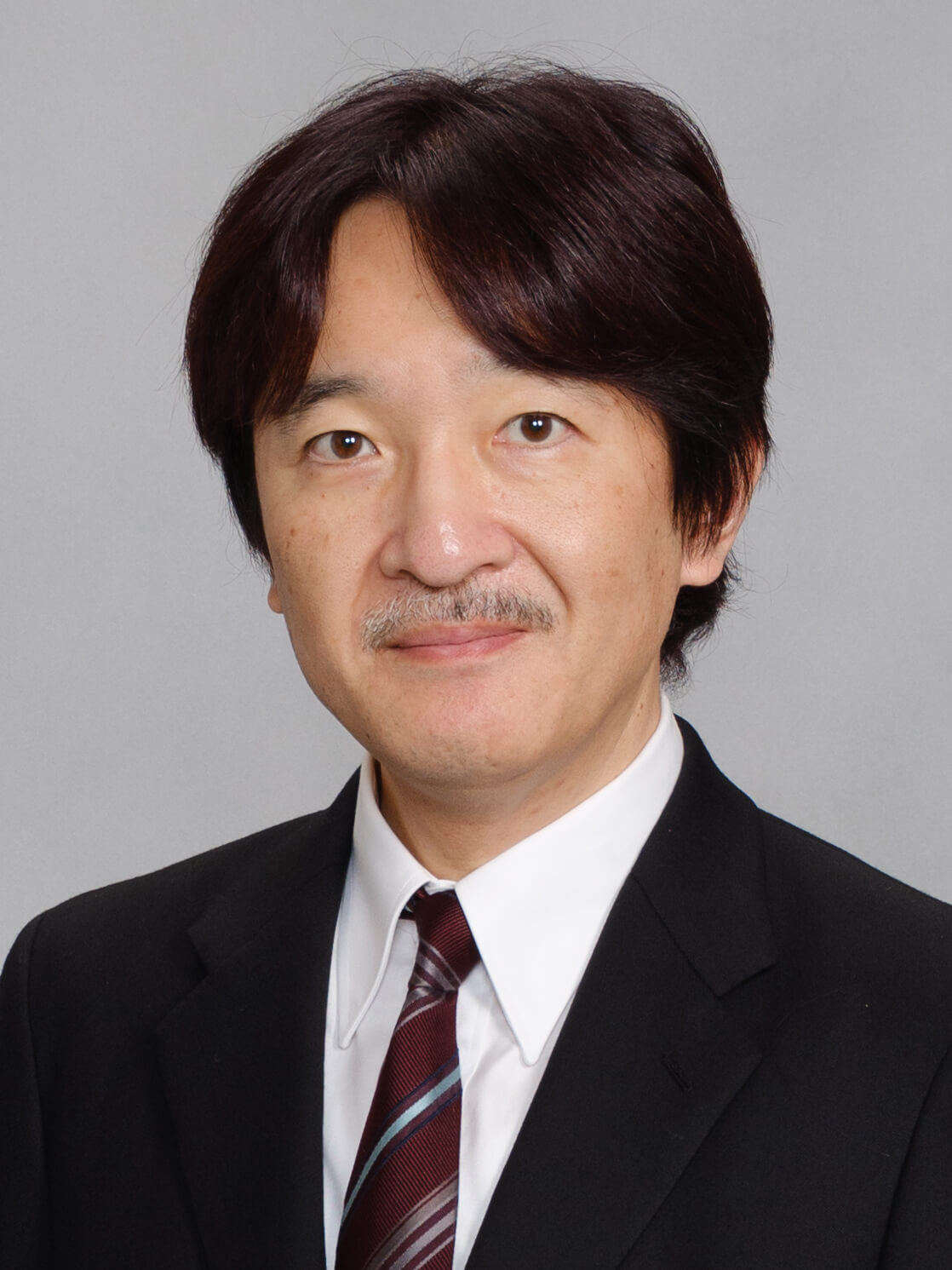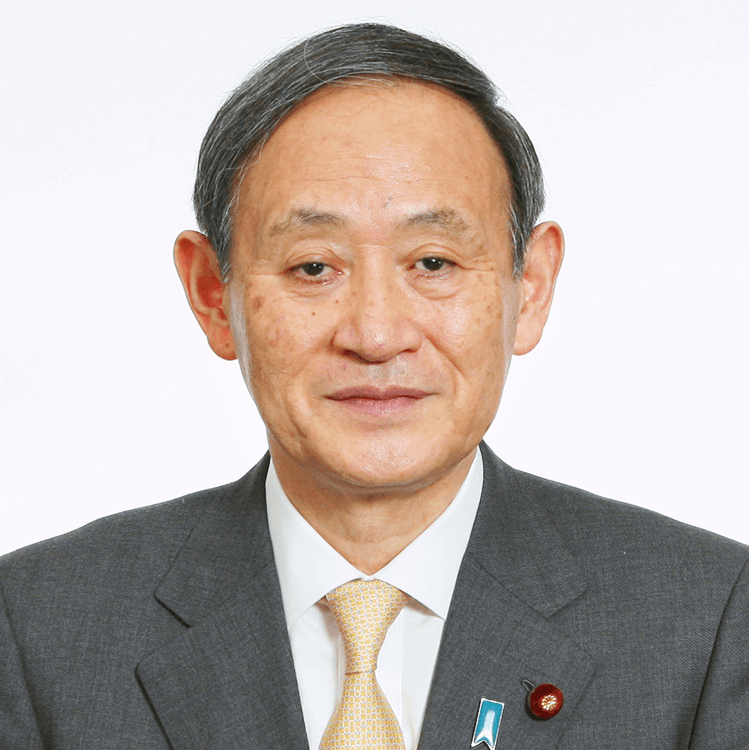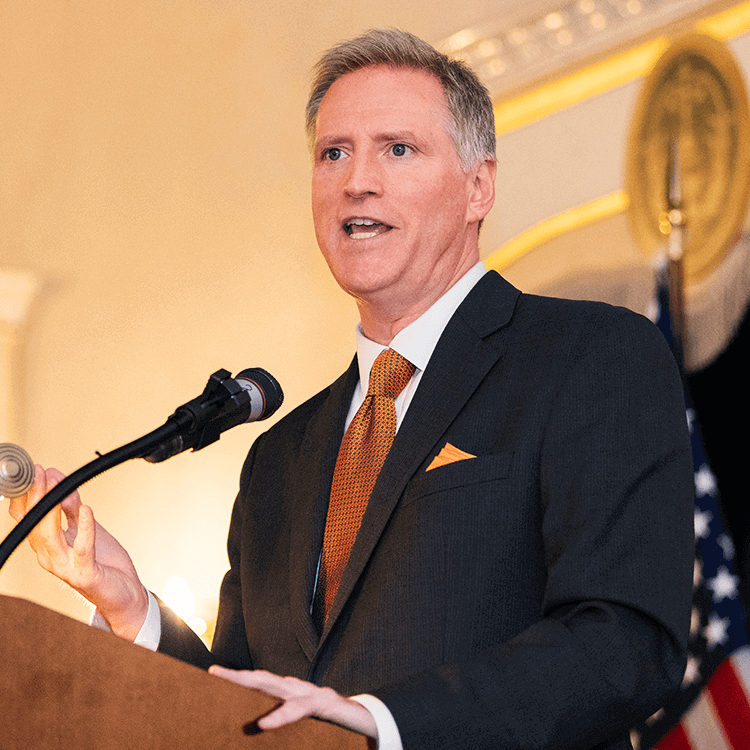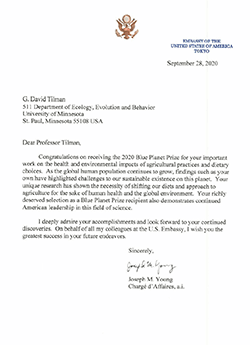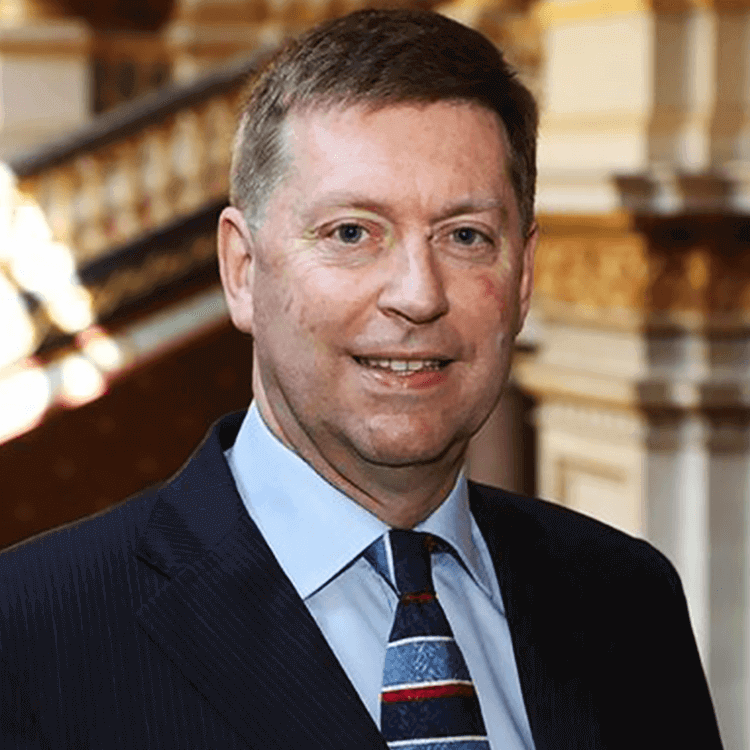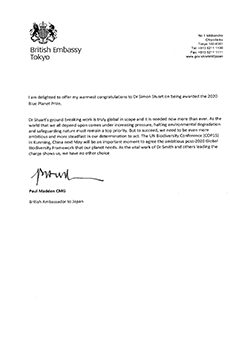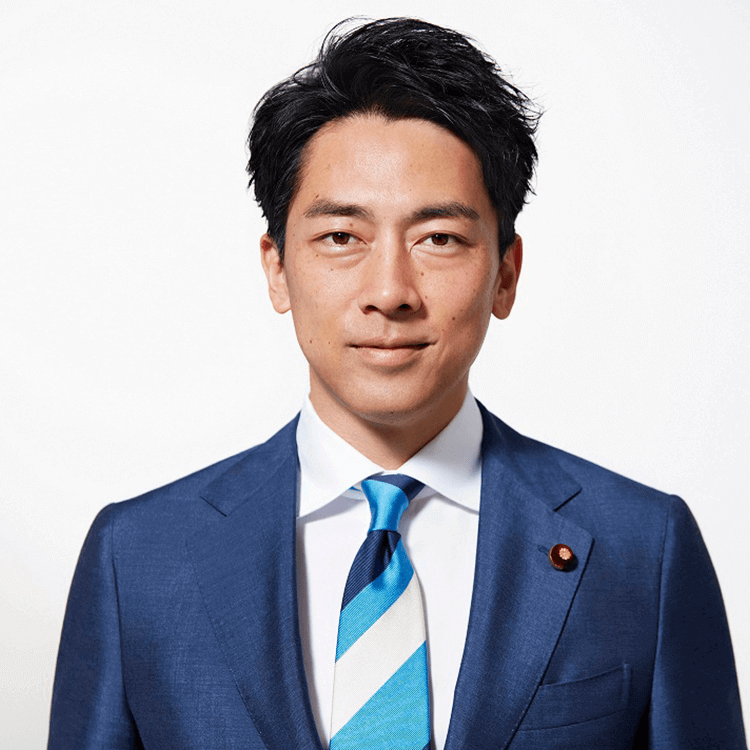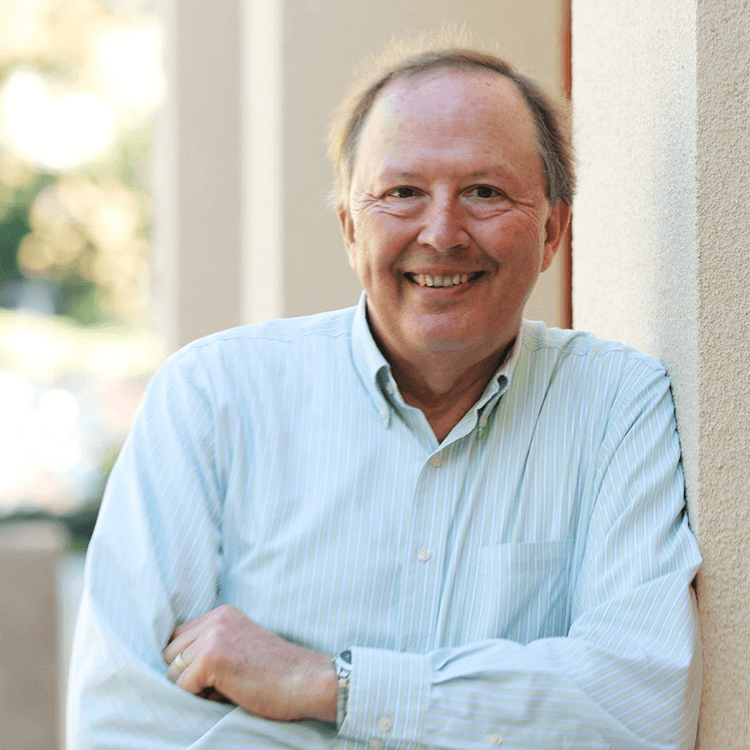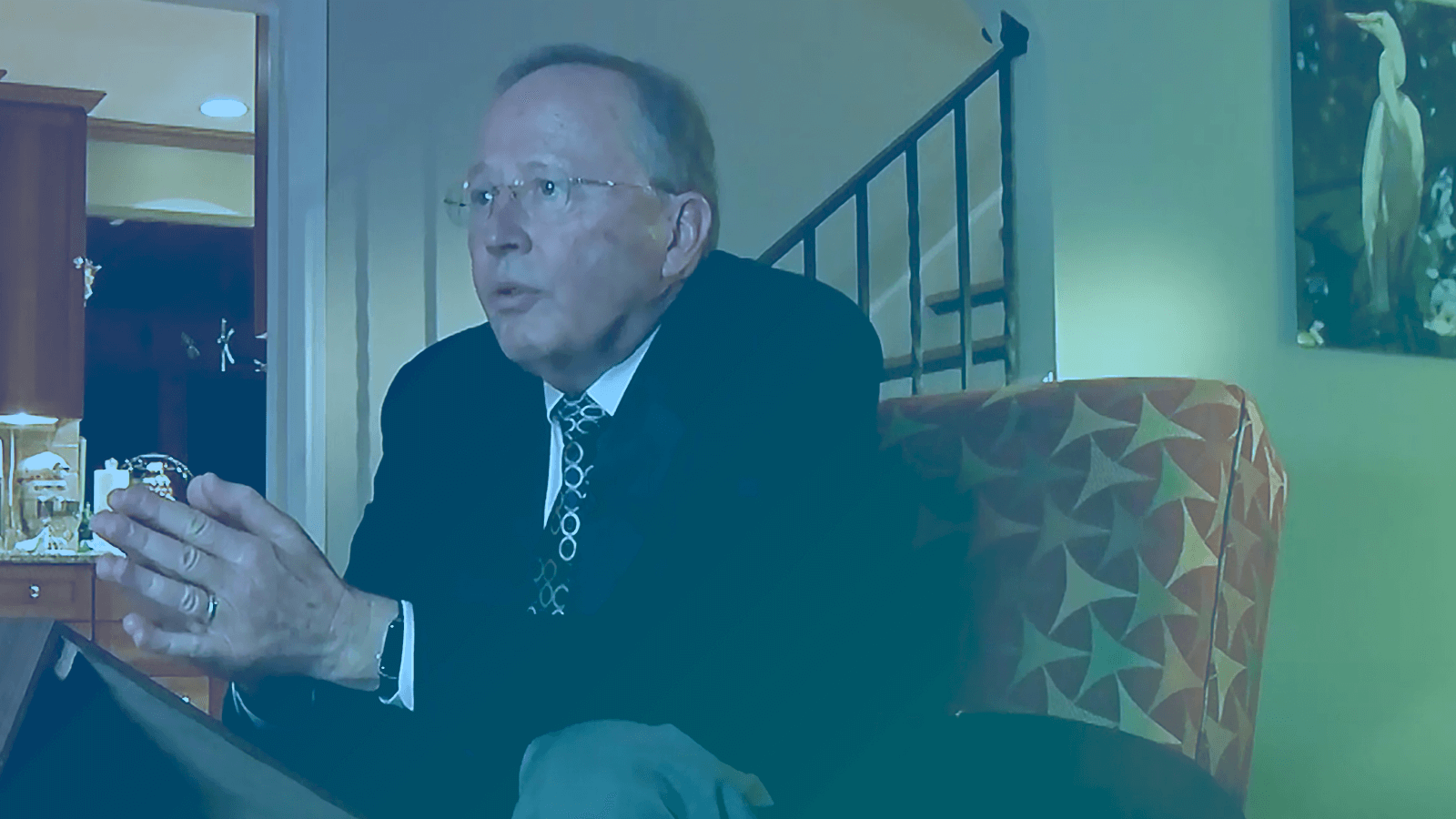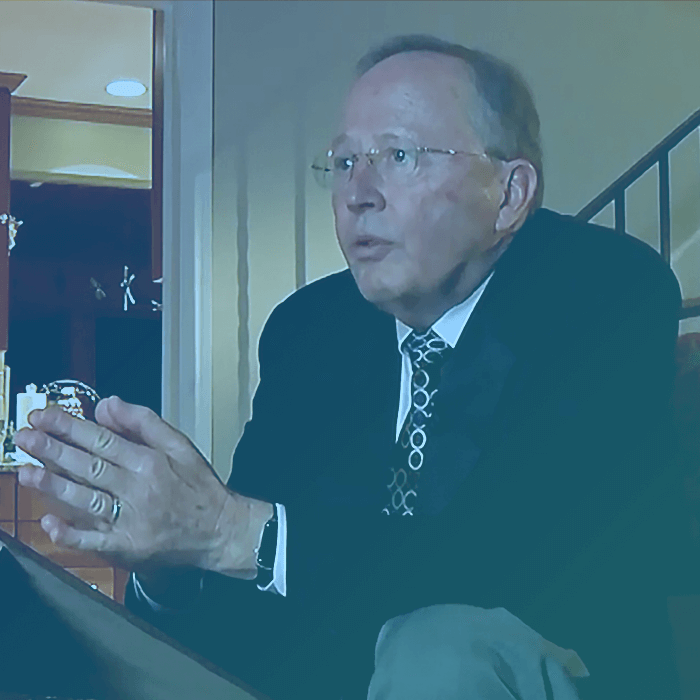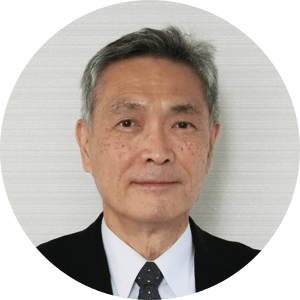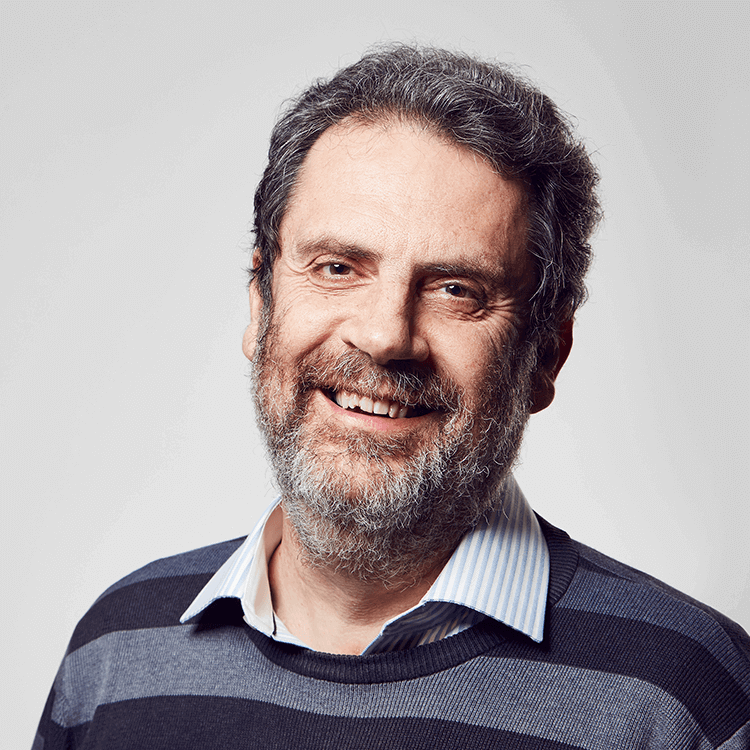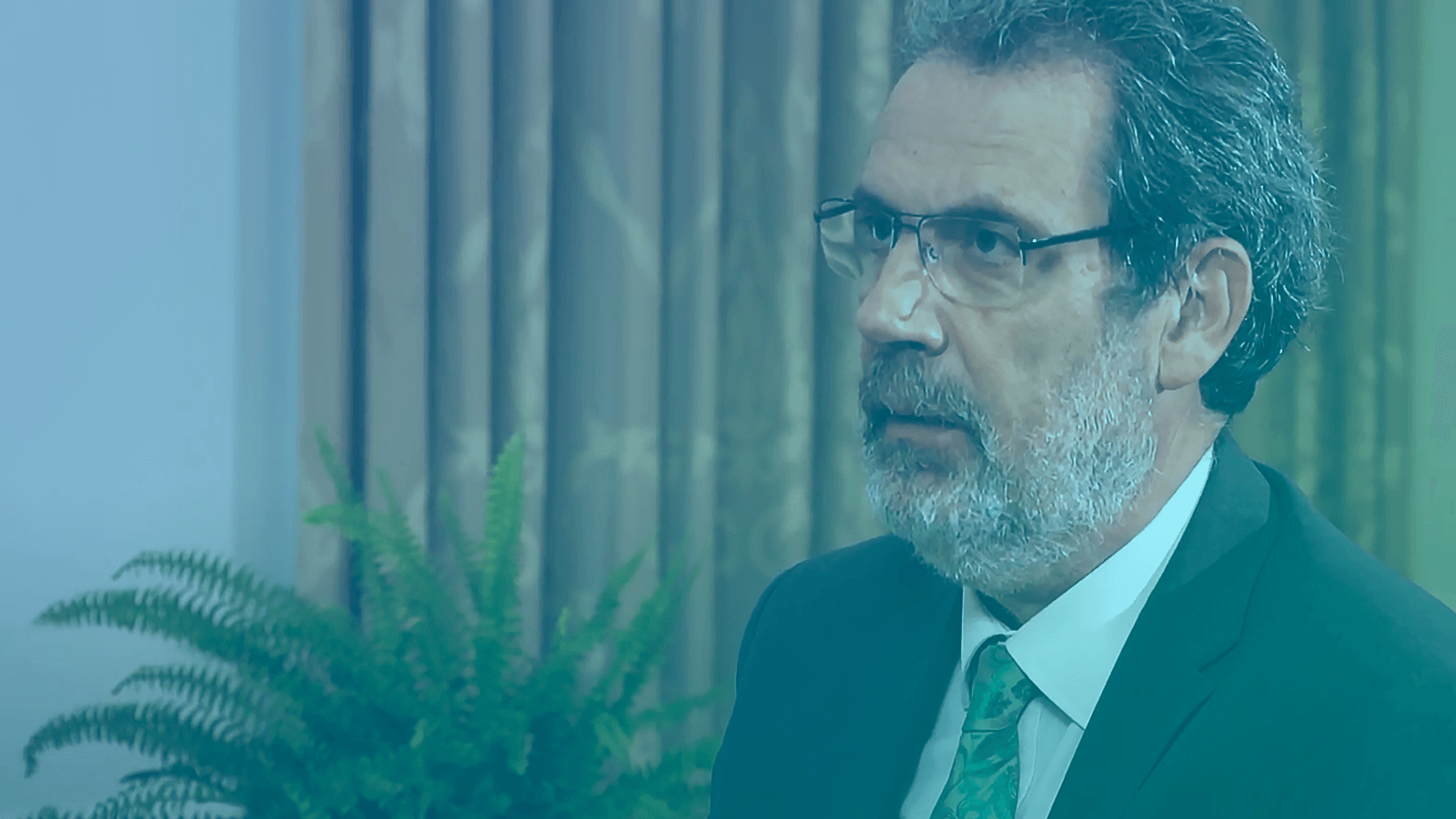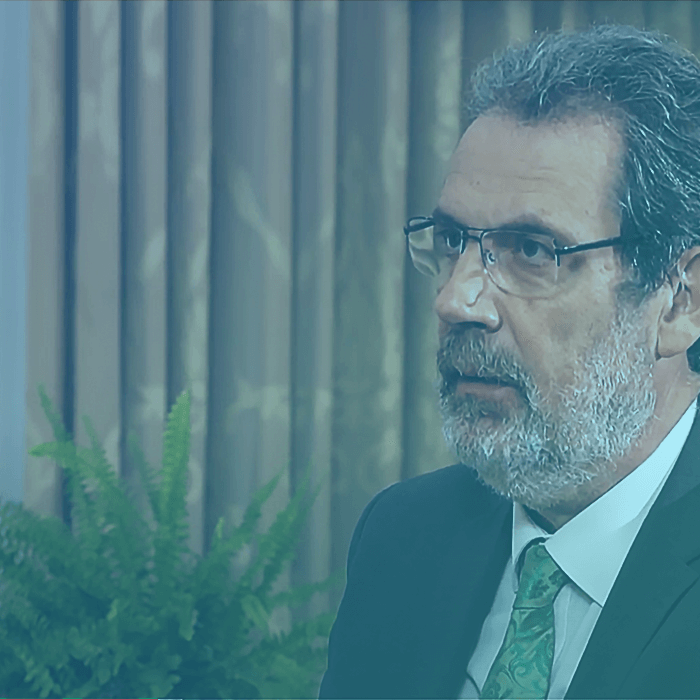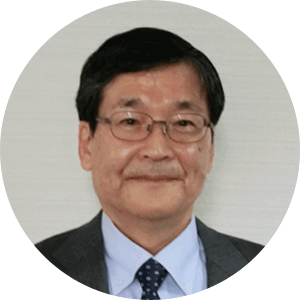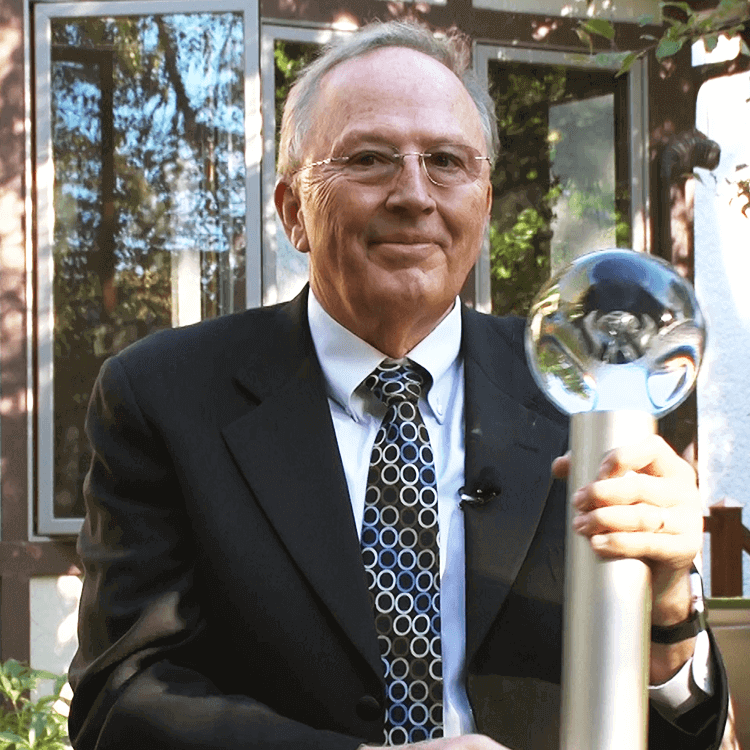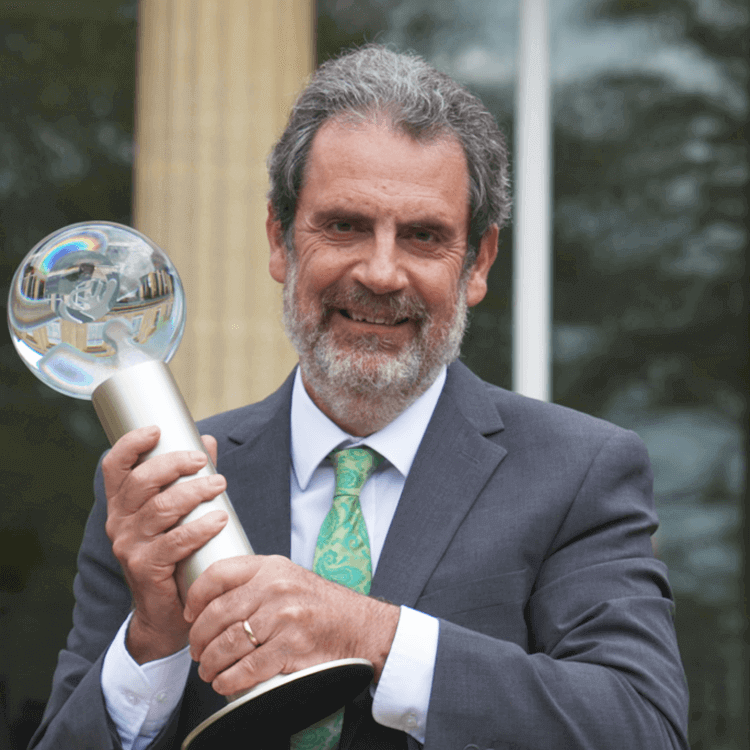I have the honor to extend my heartfelt congratulations to both Professor David Tilman and Doctor Simon Stuart on winning this year’s Blue Planet Prize.
We are facing the two global crises of the coronavirus pandemic and climate change. As we stand at a turning point of our civilization, the coronavirus pandemic is sending us a clear message: we need to Redesign our socio-economic system to be more sustainable and resilient, rather than return to the pre-pandemic society.
Needless to say, science plays a key role in advancing environmental policies toward Redesign. Especially important is to effectively communicate scientific findings to policy-makers and the public. That is exactly where Professor Tilman and Dr. Sturart have made outstanding achievements for which I would like to express my deepest gratitude and sincere respect.
Recognizing the tightly-linked diet-health-environment trilemma as a global challenge, Professor Tilman advocates for shifts toward diets and agricultural practices that are better for human health and the global environment.
While issues we are currently confronted with, such as the climate and biodiversity emergencies, are of a global scale, I strongly believe that the accumulation of individuals’ small behavioral changes and actions can lead to a global change that will protect our planet.
In this sense, Professor Tilman’s findings linking human diets and health to global environmental issues are significant. His research also has had a worldwide influence, as it was repeatedly referred to in the 2019 IPCC Special Report on Climate Change and Land.
Doctor Stuart led the development of the categories and quantitative criteria for the well known IUCN Red List of Threatened Species, and contributed significantly to the expansion of the number of species assessed.
The Red List is an established source of data for policy-making on species’ extinction risk and used by numerous institutions including the Washington Convention (CITES) and for monitoring the implementation status of the Aichi Biodiversity Targets.
While the field of Biodiversity is particularly challenging to develop a taxonomy, Doctor Stuart’s scientific contributions were instrumental in the identification of species to be safeguarded.
These findings will also be extremely valuable for consideration of a new biodiversity framework at next year’s COP15 to the Convention on Biological Diversity.
I sincerely hope that the Blue Planet Prize will continue to encourage research in environmental issues, further contributing to the dissemination of scientific knowledge. Once again, congratulations to Professor Tilman and Dr. Stuart and I look forward to their future scientific achievements.
KOIZUMI Shinjiro
Minister of the Environment, Japan

